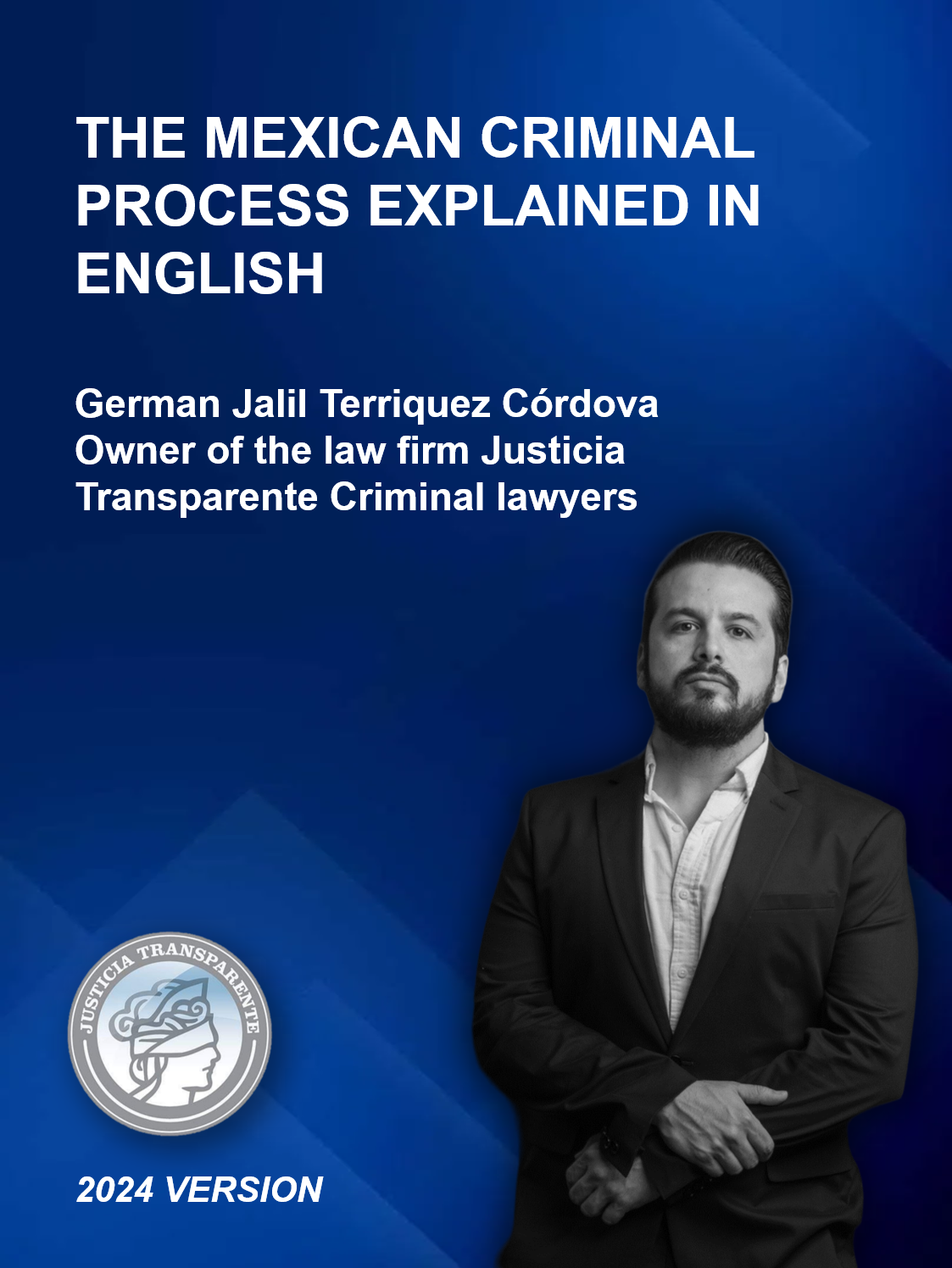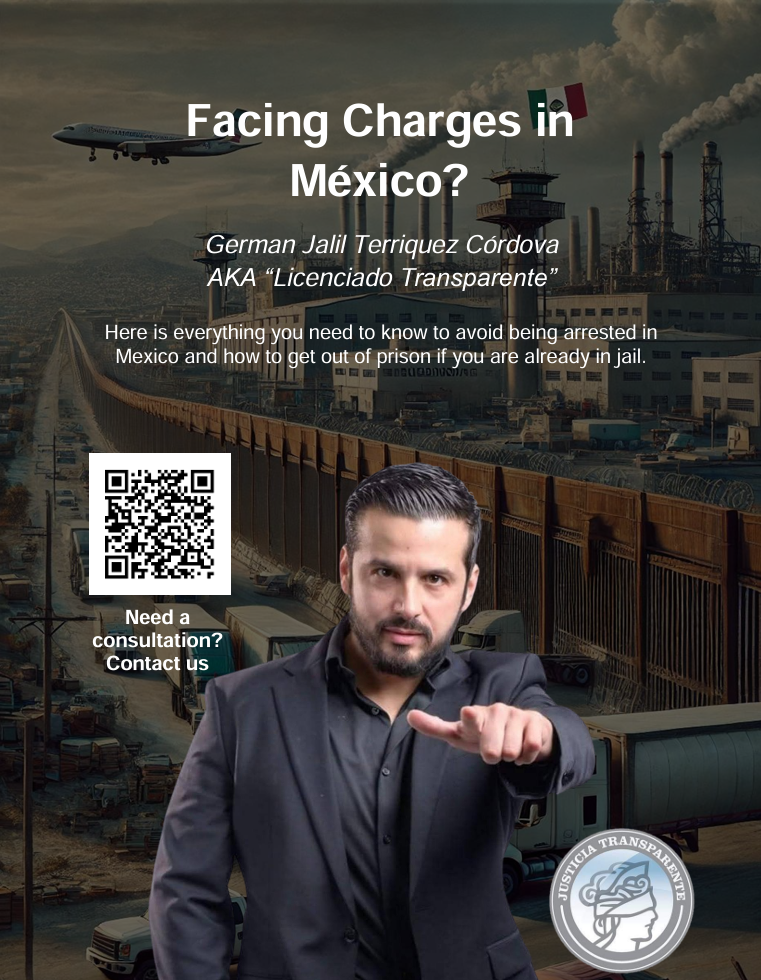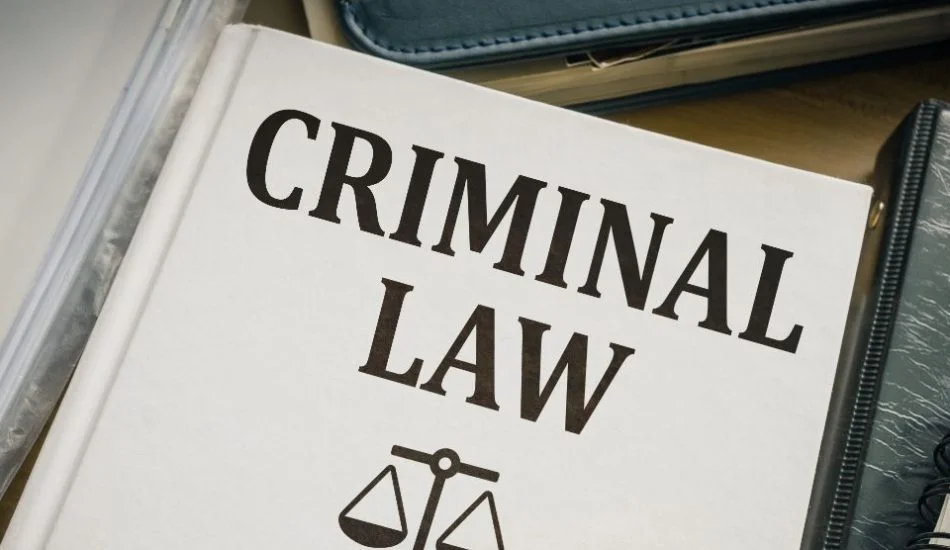We frequently need to review legal terms in Mexico related to criminal law and understand their meaning, either due to a problem within this country or the need to verify if we are being accused of a crime or if there is a possibility of releasing someone through bail or another legal figure. In this article, we will explain the most common terms in the Mexican criminal process.
1. Appeal
We frequently need to review legal terms in Mexico related to criminal law and understand their meaning, either due to a problem within this country or the need to verify whether we are being accused of a crime or if there is a possibility of releasing someone through bail or another legal mechanism. In this article, we will provide an explanation of the most common terms in the Mexican criminal process.
An appeal in Mexico is a request directed to a higher-ranking court composed of three judges called “magistrates.” These judges hold a higher rank than the judge handling the criminal process. Therefore, this appeal request is submitted when there is disagreement with the decision made by the judge presiding over the case.
Unlike appeals in the United States, in Mexico, several decisions made by the judge can be appealed, not just the verdict declaring whether the person is guilty or not guilty.
Accused a relative of a crime in Mexico? Do you need to know if it is a crime to bring weapons into Mexico? Do you need to know if it is a crime to bring marijuana into Mexico? The prosecutor is accusing me of having committed a crime that I did not commit? Has your loved one been in jail in Mexico for years?
If you are in one of these situations, hire an online consultation.
Do you want to avoid an arrest warrant against you in Mexico?
Some of the most common decisions are as follows:
- Judge’s refusal to accept a plea bargain (also plea agreement or plea deal): The Mexican criminal process allows, in certain less serious crimes, agreements between the victim, the defendant, and the prosecutor to close a case without the need for imprisonment. These agreements typically involve paying compensation to the victim and taking actions to ensure that the crime will not be repeated against the victim.
- The judge’s refusal to issue or cancel an arrest warrant.
- The imposition of excessive imprisonment or guarantees against the accused during preliminary hearings: The Mexican criminal process allows for the possibility that the accused may be sent to prison based on the circumstances of the criminal case, such as the accused not having a residence in Mexico or the severity of the crime they are being charged with.
- The sentence issued by the judge in the criminal case: If there is disagreement with the sentence issued by the judge, the defendant, the victim, or the public prosecutor may file an appeal in an attempt to change the outcome of the sentence.
2. Bail
Bail payments in Mexico differ from those in the United States, as release through bail payments in Mexico is carried out under different legal mechanisms established by the Mexican criminal process.
Visit our online store
One of our products can help you
Agreements with the victim and the prosecutor or convincing the judge that the accused should not be in prison and that the payment of bail is sufficient to ensure the accused attends preliminary hearings are some of the strategies used to achieve a result similar to bail in the United States—that is, regaining freedom through the payment of a sum of money.
3. Accomplice
The concept of complicity exists in Mexico and is punishable in most cases with the same penalties that may be imposed on the actual perpetrator of the crime.
Anyone who assists another in committing a crime will also be held responsible for it and must face the penalties established by Mexico’s criminal codes.
Crimes such as rape, murder, fraud, weapons possession, drug offenses, and any crime in which someone participates as an accomplice must be answered for under Mexican criminal law.
4. Admission
I have good news for you: in Mexico, confessions are not considered evidence. The Mexican Constitution states that a confession cannot be used as evidence to establish guilt in Mexico.
However, the accused may plead guilty to the charges brought by the prosecutor, but the judge is prohibited from issuing a conviction based solely on the defendant’s confession. There must be additional evidence against the person in order to send them to prison.
5. Accused
Article 112 of the law governing the Mexican criminal process defines the term “accused person” as follows:
A person will be generally referred to as “imputado” (defendant) when they are identified by the Public Prosecutor as a possible perpetrator or participant in an act that the law classifies as a crime. Additionally, a person is referred to as “accused” when charges have been formally brought against them, and as “sentenced” when a verdict has been issued against them, even if it has not yet become final.
6. Arraignment
In Mexico, preliminary hearings are intended to formally charge the accused with the offenses they will be investigated for, to have the judge determine if the evidence presented by the prosecutor at that time is sufficient to proceed with the investigation, and finally, to establish the measures the accused must comply with during the criminal process (bail, electronic monitoring, imprisonment).
7. Search warrant
These orders to search a private residence in Mexico must be issued by a judge and can only be granted to the prosecutor when they provide evidence that necessary evidence to support a crime exists at the residence or when there is certainty that the accused is present within the premises. These are the articles specified by the law that govern search warrants in Mexico.
Article 282. Request for a search warrant.
When in the investigation the Public Prosecutor deems it necessary to carry out a search, because the place to be inspected is a home or private property, it will request by any means the judicial authorization to carry out the corresponding act of investigation. The request, which will have arecord, will state the place to be inspected, the person or persons to be apprehended and the objects sought, indicating the reasons and indications that support the need for the order, as wellas the public servants who may practice or intervene in said act of investigation.
If the place to be inspected is publicly accessible and is part of the private residence, the latter will not be subject to a search, unless it has been so ordered.
Article 283. Resolution ordering the search.
The judicial decision ordering the search must contain at least:
I. The name and position of the Control Judge who authorizes it and the identification of the process in which it is ordered;
II. The concrete determination of the place or places that will have to be searched and what isexpected to be found in them;
III. The reason for the search, having to indicate or express the indications from which the possibility of finding in the place the person or persons who have to apprehend or the objects that are sought;
IV. The day and time on which the search must be carried out or the determination that, if it is not carried out within the three days following its authorization, will be without effect when the exactdate of completion is not specified, and
V. Public servants authorized to practice and intervene in the search. The search warrant request must be resolved by the judicial authority immediately by any means that guarantees its authenticity, or in a private hearing with the sole appearance of the Public Prosecutor, within a period not exceeding six hours after it was filed. has received. If the resolution is issued orregistered by means other than writing, the operative points of the search warrant must betranscribed and delivered to the Public Ministry.
8. Beyond reasonable doubt
This constitutional principle also applies in Mexico: the judge must convict when there is no doubt that the accused committed the crime, when it is the most credible hypothesis for the judge, and when there is no evidence against it that raises doubt about whether the accused committed the crime.
9. Admisssible Evidence
In Mexico, all evidence is admissible in the criminal process as long as it does not violate human rights, is not excessive, irrelevant, unnecessary, or declared null.
Evidence is obtained in violation of fundamental rights when it is acquired through human rights violations, such as obtaining a statement through torture.
Evidence is considered excessive when there are already many pieces of evidence in the criminal process to establish the same facts.
Evidence is irrelevant and unnecessary when it is not related to the accused facts.
10. Criminal Charge.
In Mexico, the criminal charge is called “imputación” (indictment) before the oral trial, or “acusación” (accusation) during the oral trial.
Criminal charges are presented by the public prosecutor. You can review the concepts of “imputación” and “acusacion” in the following articles.
Article 311. Procedure to formulate the imputation.
Once the defendant is present at the initial hearing, because his appearance has been ordered, because an arrest warrant has been executed against him or the arrest has been ratified, andafter the control judge has verified that the accused knows his fundamental rights within the criminal procedure or, where appropriate, after having been made known, the floor will be offered to the agent of the Public Ministry so that he exposes to the accused the fact that is attributed tohim, the preliminary legal qualification, the date, place and manner of its commission, the form of intervention that it has had in it, as well as the name of its accuser, unless, in the opinion of the control judge, it is necessary to reserve their identity in the cases authorized by the Constitution
and by law.
The Control Judge at the request of the accused or his Defender, may request the clarifications or precisions that he deems necessary regarding the accusation formulated by the Public Ministry.
Explanation: At this point the prosecutor will make a presentation of the criminal act by communicating in the second person to the accused.
It is important to point out that the formulation of the accusation is a procedural act that cannot subsist without the presence of the accused, so if he is not in the courtroom for any reason, it cannot be carried out, since it must to be present and the judge must verify that he has understood each of the facts that are imputed to him, as well as his degree of authorship, participation and, at the discretion of the prosecutor, the subsumption of thefact with the criminal law.
Article 335. Content of the accusation.
Once the complementary investigation phase has been completed, if the Public Prosecutor considers that the investigation provides elements to bring criminal action against the accused, it will present the accusation.
The accusation of the Public Ministry must contain clearly and precisely
I. The individualization of the defendants and their Defender;
Explanation: It is of the utmost importance that these data be clearly presented, since firstly, the court must verify that it is the accused or accused indicated in the order linking the process, and on the other hand, it must prepare the future intermediate hearing, so itis important to make the corresponding notifications.
II. The identification of the victim or offended party and his legal adviser;
Explanation: In the same way as what is established in the previous section, it is extremely important to establish the identity of the victim or offended party and their adviser, to verify that there is identity among those established in the order linking the process, and on the other hand, In addition, the corresponding notifications can be made.
III. The clear, precise, circumstantial and specific relationship of the facts attributed in manner, time and place, as well as their legal classification;
Explanation: The fact that was indicated in the formulation of the accusation must be the
one that lasts throughout the sequel to the process, so the prosecutor must make an effort to write a fact that complies with the points established in this fraction, since this at his At the same time, it generates legal certainty for the defendant to be able to support the defense in a technical and adequate manner.
For purposes of legal consistency in the process, this point is extremely important.
The facts for which the order linking the process was issued must be the same, unless they are only peripheral details that do not render the defendant defenseless, since if so, the defendant or his defense attorney could point out this formal defect. .
The legal classification can vary due to what is established in the order of connection to the process, however, at the time if this happens, the control judge must give the necessary time for the defense to prepare its case, in case of so request it.
IV. The relation of the modalities of the crime that concur; In the event that the crime has some mitigating or aggravating modality, it must be mentioned in the indictment.
V. The authorship or specific participation attributed to the accused;
Explanation: It must be established if the defendant acted as direct author, co-author, mediate author, etc.
VI. The expression of the applicable legal precepts;
Explanation: It is extremely important to justify the articles that are applicable to the typical behavior and the form of participation.
VII. The indication of the means of proof that it intends to offer, as well as the anticipated proof that has been presented in the investigation stage;
Explanation: This is the main point of the accusation, since the means of proof that are intended to be offered must be clearly indicated, as well as their relevance.
Testimonials, expert opinions, documentaries and other means of proof are regularly the means of proof that are offered within the accusation.
VIII. The amount of the damage repair and the means of proof offered to prove it;
Explanation: The prosecutor must add to his accusation the amount of reparation for the damage that he intends to request from the defendant for the crime for which he is accused, and at the same time, present the evidence with which he intends to support it.
IX. The penalty or security measure whose application is requested including, where appropriate, the one corresponding to the crime contest;
Explanation: The prosecution requests the penalty to be imposed, which obviously must be within the parameters for it and the prosecutor must observe the individualization criteria with full objectivity at the time of its imposition.
X. The means of proof that the Public Ministry intends to present for the individualization of the penalty and, where appropriate, for the origin of substitutes for the prison sentence or suspension thereof;
XI. The request for confiscation of the insured assets;
XII. The proposal of evidentiary agreements, if applicable, and
Explanation: The procedural economy reaches in its aspect to the evidentiary agreements, which is nothing more than a point of agreement between the parties on some point of fact of the theory of the case that is not intended to be debated.
If there is no agreement between the parties to establish these evidentiary agreements, they should not be carried out.
XIII. The request that some form of early termination of the process be applied when it proceeds.
The accusation may only be formulated for the facts and persons indicated in the order linking the process, even if a different classification is made, which must be made known to the parties. If the Public Prosecutor’s Office or, where appropriate, the victim or offended party offer the testimony of witnesses or experts as means of evidence, they must present a list identifying themselves by name, surname, address and way of locating them, also indicating the points on
which they will deal. the interrogations.
The Mexican criminal process explained in English

Facing Charges in México?.




